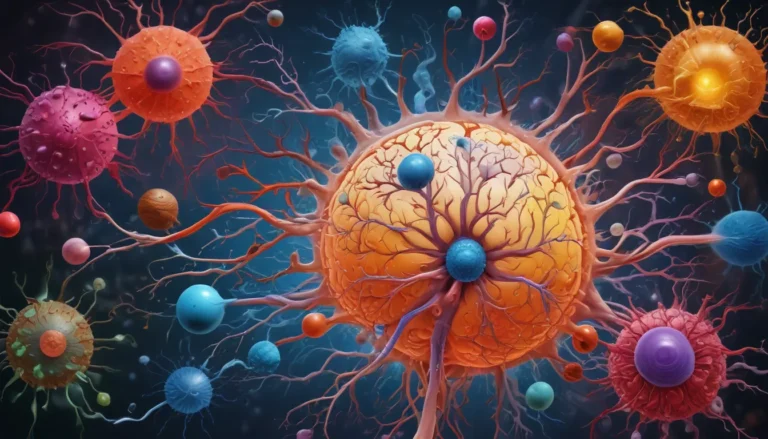A Note About Images: The images used in our articles are for illustration purposes only and may not exactly match the content. They are meant to engage readers, but the text should be relied upon for accurate information.
In the realm of biology and agriculture, transgenic plants, also known as genetically modified organisms (GMOs), have taken center stage. These incredible creations have been genetically altered to possess traits not naturally found in their species, propelling agriculture into a new era of innovation and sustainability. Let’s embark on a journey to discover the wonders of transgenic plants and explore the extraordinary feats they have achieved.
Unveiling the World of Transgenic Plants
Transgenic plants, born in 1983, have emerged as a groundbreaking solution to various challenges in agriculture. They hold the key to enhancing crop yields, combatting pests and diseases, producing medicines, and even improving nutritional content. While they offer a world of exciting possibilities, transgenic plants also bring forth ethical and environmental concerns that necessitate careful evaluation and regulation. Let’s dive deeper into the astonishing facts that make transgenic plants a marvel of modern science.
The Historic Creation of the First Transgenic Plant
In a momentous leap for science, the first transgenic plant was born in 1983 when a foreign gene was successfully inserted into a tobacco plant. This revolutionary achievement marked the dawn of a new era in agriculture, laying the foundation for the development of countless genetically modified crops that we see today. The birth of the first transgenic plant stands as a testament to the limitless possibilities of genetic engineering in transforming the world of agriculture.
The Incredible Resistance of Transgenic Plants
One of the remarkable features of transgenic plants is their ability to resist pests and diseases. By incorporating genes from naturally resistant organisms, scientists have created crops that can defend themselves against harmful insects and pathogens. This not only reduces the reliance on chemical pesticides but also enhances crop yields and minimizes post-harvest losses, offering a sustainable solution to agricultural challenges.
Thriving in Harsh Environments: The Resilience of Transgenic Plants
Transgenic plants have been engineered to tolerate extreme environmental conditions, paving the way for agriculture in regions with challenging climates. Through the insertion of specific genes, scientists have developed crops that can withstand drought, heat, cold, and high salinity levels. This breakthrough in genetic modification holds the promise of ensuring food security and sustainability in the face of environmental adversities.
Harnessing Transgenic Plants for Medicine Production
In a surprising turn of events, transgenic plants have found a new role as biofactories for producing valuable medicines. By introducing genes encoding therapeutic proteins into plants, researchers have unlocked the potential for harvesting these proteins from plant tissues. This innovative approach opens doors to a more affordable and accessible means of drug production, revolutionizing the pharmaceutical industry.
Environmental Cleanup with Transgenic Plants
Transgenic plants have demonstrated their potential in environmental remediation through a process known as bioremediation. Certain plants can be engineered to absorb pollutants and contaminants from soil and water, offering a sustainable and cost-effective solution for cleaning up polluted sites and restoring ecological balance. This environmentally friendly approach showcases the versatility of transgenic plants beyond agriculture.
Nourishing the World: Enhanced Nutritional Value of Transgenic Plants
Imagine crops that not only sustain but also nourish the human population. Through genetic modification, scientists have developed transgenic plants with increased levels of essential nutrients such as vitamins, minerals, and proteins. These biofortified crops hold the potential to combat malnutrition and improve public health, particularly in developing countries where nutritional deficiencies prevail.
Prolonging Freshness: The Shelf Life Enhancement of Transgenic Plants
Transgenic plants have been endowed with extended shelf life due to their enhanced resistance to decay and spoilage. By introducing genes that inhibit the breakdown of fruits and vegetables, scientists have created crops with improved post-harvest characteristics. This advancement not only reduces food wastage but also facilitates the transport of fresh produce over long distances, ensuring food accessibility.
Balancing Agriculture and Biodiversity with Transgenic Plants
Genetically modified crops can play a pivotal role in preserving biodiversity by minimizing land clearing for agriculture and reducing the use of harmful pesticides. Transgenic plants support sustainable farming practices that promote the coexistence of agricultural activities and wildlife conservation, contributing to the preservation of natural habitats and ecosystems. This harmonious approach highlights the environmental benefits of transgenic plants.
Addressing Concerns: The Ethical and Environmental Considerations of Transgenic Plants
While transgenic plants offer a myriad of possibilities, they also raise valid ethical and environmental concerns. Some apprehensions include the potential unintended effects on ecosystems, the emergence of superweeds, and the concentration of power in the hands of multinational corporations. It is imperative to conduct thorough evaluations and implement stringent regulations to ensure the safe and responsible use of genetically modified crops, safeguarding both the environment and human health.
Embracing the Future of Agriculture with Transgenic Plants
In conclusion, transgenic plants stand as a testament to the transformative power of genetic engineering in agriculture. These marvels of science have revolutionized crop production, mitigated agricultural challenges, and offered sustainable solutions for a changing world. While the ethical and safety considerations surrounding transgenic plants are paramount, ongoing research and regulatory frameworks continue to ensure their responsible deployment. As technology advances, the realm of transgenic plants promises further innovations, heralding a future where agriculture meets the demands of a growing population sustainably.
Frequently Asked Questions
Q: What are transgenic plants?
A: Transgenic plants are genetically modified organisms that have undergone DNA modifications through the insertion of genes from other organisms to introduce desirable traits.
Q: How are transgenic plants created?
A: Transgenic plants are crafted through genetic engineering, where specific genes responsible for desired traits are inserted into the genome of the target plant using various techniques.
Q: What are the advantages of transgenic plants?
A: Transgenic plants offer benefits such as increased crop yields, enhanced resistance to pests and diseases, improved nutritional content, and the potential to address global food security and environmental challenges.
Q: Are transgenic plants safe for consumption?
A: Extensive research and regulatory protocols ensure the safety of transgenic plants for human consumption, with genetically modified crops undergoing rigorous testing before reaching the market.
Q: What are some examples of transgenic plants?
A: Examples of transgenic plants include Bt cotton, Golden Rice, herbicide-tolerant soybeans, and virus-resistant papayas, each tailored to exhibit specific beneficial traits through genetic modification.
Expanding Horizons in Plant Science
Transgenic plants represent a remarkable chapter in the evolving landscape of plant science, offering a glimpse into the boundless potential of genetic engineering. For those intrigued by the transformative power of genetic modification, explore more about genetic engineering in “13 Intriguing Facts About Genetic Engineering,” unraveling its profound impact on agriculture and medicine. If the debate surrounding GMOs piques your interest, delve into our comprehensive article on “GMO Facts” to discern fact from fiction. Additionally, stay abreast of the latest advancements in plant science with our captivating piece on “18 Fascinating Facts About Biotechnology,” shedding light on the cutting-edge innovations shaping our future.
Trustworthy Content at Your Fingertips
At the heart of our mission lies a commitment to delivering trustworthy and engaging content to our readers. Every fact on our platform is contributed by real users, ensuring a diverse range of insights and information. Our dedicated editors meticulously review each submission to uphold the highest standards of accuracy and reliability, guaranteeing that the facts we present are not only captivating but also credible. Explore, learn, and trust in our unwavering dedication to quality and authenticity as you embark on an enlightening journey with us.
In conclusion, transgenic plants stand as a testament to the transformative power of genetic engineering in agriculture. These marvels of science have revolutionized crop production, mitigated agricultural challenges, and offered sustainable solutions for a changing world. While the ethical and safety considerations surrounding transgenic plants are paramount, ongoing research and regulatory frameworks continue to ensure their responsible deployment. As technology advances, the realm of transgenic plants promises further innovations, heralding a future where agriculture meets the demands of a growing population sustainably.





